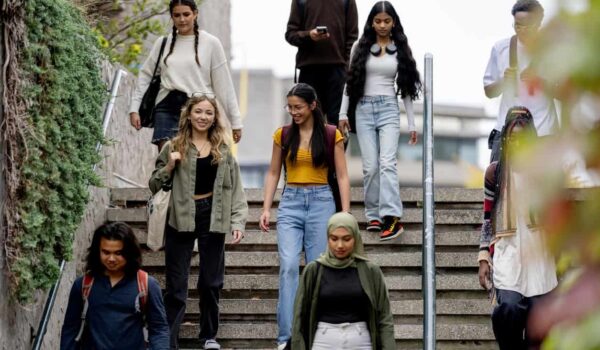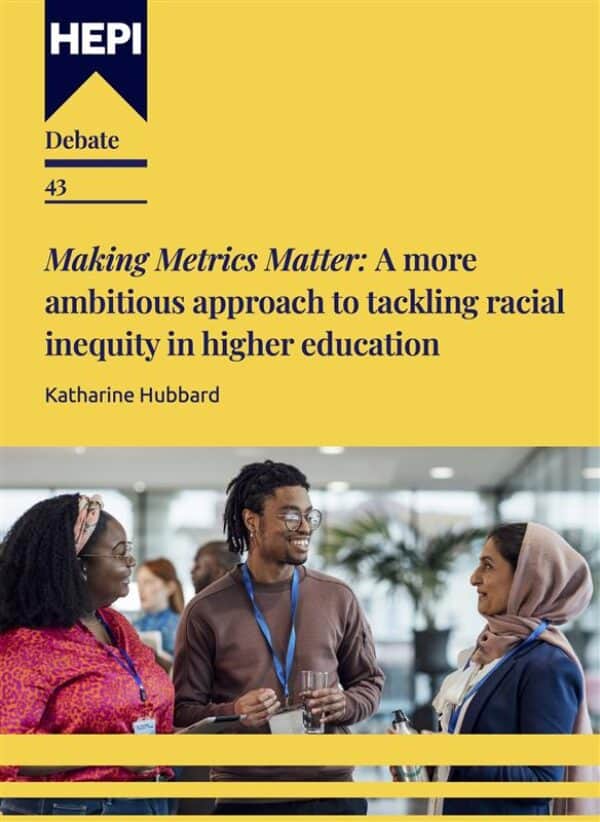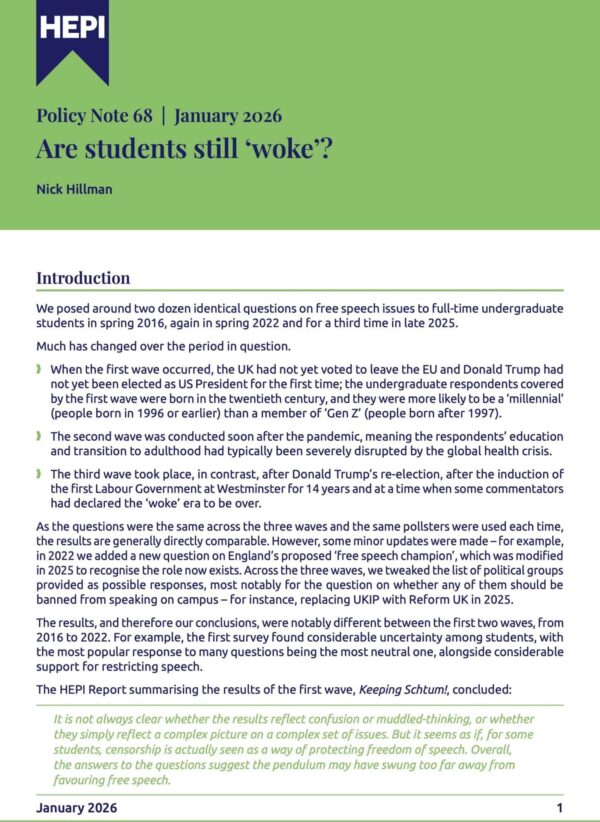‘We Didn’t Start the Fire’: Is student activism dead?
Welcome back to the HEPI blog. Our apologies if you have missed your daily dose of higher education policy debate being delivered to your inbox, but we have been busy working on something new. Following our recent HEPI survey, we were thrilled that in addition to readers using HEPI to stay up to date with the latest in higher education policy, over 70% of our readership use HEPI’s research as an evidence and information base. Many colleagues also draw on this to inform strategic planning, develop good practice, or influence governmental and regulatory policy. As such, we have revamped the HEPI website, making it easier for you to find the trusted, evidence-based research we provide. You can now explore our reports, blogs and events by policy area and use the improved search function to find everything you need. We encourage you to visit the new site, and in the spirit of enthusiastic debate, to let us know what you think.
Today’s blog was authored by Darcie Jones, former Vice President of Education at the University of Plymouth Students’ Union and current HEPI Intern.
We Didn’t Start the Fire by Billy Joel, a karaoke classic. But most importantly a 40-year list of crises and cultural touch points, many of which still present in 2025. The tale of generational fatigue led me to think about the role students play in inheriting challenges they didn’t ignite but are trying to fight. As a sabbatical officer, I often heard ‘our students aren’t activists or political’, suggesting a view of apathy towards student activism. So is student activism dead, or does it need a new lens?
Public perception of student activism often falls within a stereotype: paint throwing, glued to the M5, and generally privileged. In some ways that isn’t false, those activists do exist. Iconic movements such as climate strikes and large-scale encampments often dominate the narrative. It takes activists like these to stand-up, utilise their privilege and be radical to create public discourse. However, such dramatic imagery can cultivate scepticism: are students genuinely passionate or merely troublemakers? Maybe it is possible they can be both.
HEPIs report ‘There was nothing to do but take action’: The encampments protesting for Palestine and the response to them, documented ‘one of the most intensive periods of student protest since the Vietnam War.’ These encampments, born of frustration, helplessness and digital outrage, illustrated a moment when activism was unmistakably alive and visible on campuses. However, what happens to student activism when ‘radical activists’ take a break?
What if student activism isn’t always headline worthy? What if it thrives quietly in the pages of student newspapers, or in the safe spaces built by student communities? Reframing of student activism recognises that while it can be revolutionary, student activism can also be impactful and behind the scenes.
From investigative features on sector issues such as tuition fee hikes, to institutional procedural failures, student journalism shines a light where mainstream media may not. Written by (sometimes faceless) students, hard-hitting features highlight the feelings amongst the student community and utilises media presence to create institutional discourse and influence policy – all without having to leave their bedrooms. The importance of student newspapers in amplifying the voice of students on local or global issues can be seen sector wide, with The Tab, originally established at the University of Cambridge, now spanning across 29 UK universities.
Community-led student spaces are an overlooked driver of cultural change. Student societies and support groups for those from marginalised backgrounds, such as LGBTQ+ societies, offer more than community. They lobby for inclusive institutional policies, host educational events and shape campus cultures from within. These groups offer a safe space for students to form authentic communities without marginalisation, in itself being a form of activism for students from certain cultures. Student groups show that impactful campaigning can be done with accessibility in mind, empowering silenced voices to speak up in ways that suit their needs.
This is just a small example of the methods in which students portray activism within student communities. Overall, arguing that students ‘are not political’ erases all that students do to challenge political climates. Choosing to attend work over lectures, creating a student-led community larder to counteract student poverty, attending a pride parade – these are all political choices. This perspective broadens the activism spectrum: it is not just about visible spectacle – it is about sustained effort, relationship-building, and structural change in all forms.
Moreover, it challenges the notion that activism is solely reactive. Instead, activism can be proactive and constructive, laying the groundwork for safer, more inclusive and better-informed environments.
Therefore, student activism is not dead. It remains alive and evolving. Yes, fiery protests make headlines and are important to enact urgent change. But equally important are the quieter forms of resistance: the written word, shared personal experience, safe and inclusive spaces built one meeting at a time.
Just as the fire ‘was always burning’, student activism continues – whether lighting bonfires or quietly tending embers in the corners of campus. Let’s not dismiss it when it is not loudly visible; instead, let’s recognise and foster it wherever it thrives.







Comments
Ron Barnett says:
Very helpful piece. Insightful.
It prompts the thought that HEPI might put in hand some work seriously to examine the extent of student participation in groups and societies, whether under the auspices of the Student Union or in the wider society. To what extent are students active in this way and to what extent would they wish to do so, if they had the time and resources so to do?
As a member of the ‘research into higher education’, it is rather scandalous that we know so little about this profoundly important part of ‘the student experience’.
Ron Barnett
Reply
kamir bouchareb st says:
thank you for this
Reply
Add comment